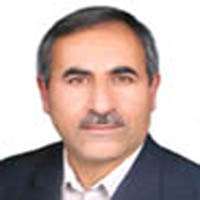Effects of High-Dose Selenium Supplementation on Oxidative Stress and Inflammatory Markers in Critically Ill Children After Gastrointestinal Surgery: A Randomized Clinical Trial
Pediatric observational studies have indicated that most critically ill children have low serum selenium level, which is associated with the increased incidence of multiple organ failure and deteriorated clinical outcomes. Selenium plays a key role in the endogenous antioxidant defense mechanism and inflammatory pathways.
The present study aimed to assess the effects of high-dose selenium supplementation on the improvement of inflammatory and oxidative stress indices, as well as clinical outcomes, in pediatric patients with severe oxidative stress and inflammation following major gastrointestinal surgeries.
This prospective, single-blind, randomized, parallel group superiority trial was conducted at the pediatric intensive care unit (PICU) of Akbar Pediatric Hospital in Mashhad, Iran in 2019. Patients were assigned to the supplementation (high-dose selenium: 20 µg/kg/d) and control groups (placebo with the recommended dietary allowance doses of selenium) using stratified blocks. Among 72 eligible critically ill children after gastrointestinal surgery, 66 patients completed the study. Inflammatory markers were measured and compared between the groups, including high-sensitivity C-reactive protein (hsCRP), interleukin 1 beta (IL-1β), prooxidant-antioxidant balance (PAB) assay, and clinical outcomes. Data analysis was performed in SPSS version 20 using the intention-to-treat approach.
Only 14 patients had optimal serum selenium concentrations before the surgery and PICU admission. At the end of the study, 90.6% of the patients (n = 29) in the intervention group and 100% (n = 34) of those in the placebo group had suboptimal serum selenium levels (< 50 ng/mL). Although supplementation with high-dose selenium decreased the inflammatory markers in the post-surgical critically ill children (-18 mg/mL and -37.5 pg/mL for hsCRP and IL-1β, respectively), the administered dose could not improve the serum glutathione peroxidase (GPx) concentrations as the selenium functional marker, as well as the PAB assay as the single test to assess the balance/imbalance of the oxidants and antioxidants simultaneously. Additionally, clinical outcomes such as infections, length of ICU stay, and 28-day mortality did not improve after the intervention.
According to the results, high-dose selenium supplementation (20 µg/kg/d) in the post-surgical critically ill children could improve the serum inflammatory markers. However, the changes were suboptimal with no significant effects of the serum GPx concentrations, antioxidant defense system, and clinical outcomes.
- حق عضویت دریافتی صرف حمایت از نشریات عضو و نگهداری، تکمیل و توسعه مگیران میشود.
- پرداخت حق اشتراک و دانلود مقالات اجازه بازنشر آن در سایر رسانههای چاپی و دیجیتال را به کاربر نمیدهد.


